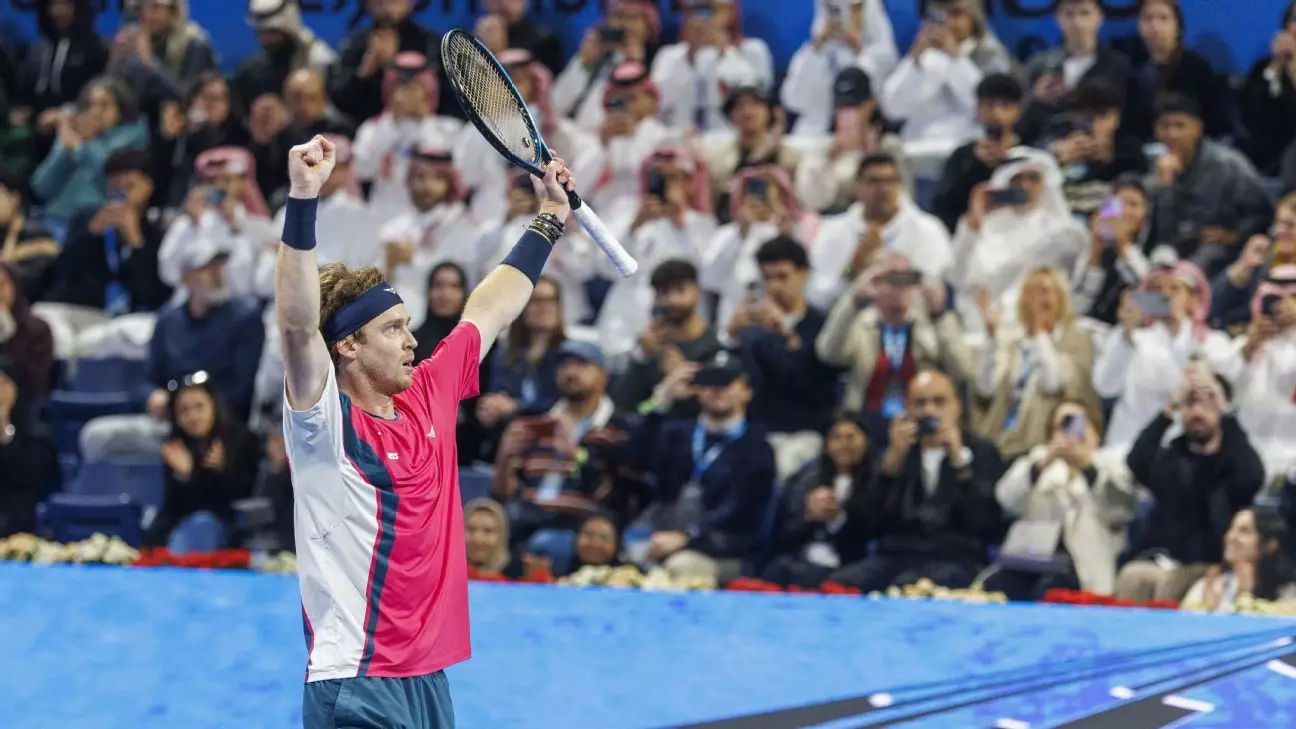Young athletes often face colossal pressures, but for Andrey Rublev, ranked No. 9 in the world, these challenges plunged him into a deeper realm of self-doubt and emotional turmoil. Rublev, who has exhibited flashes of brilliance on the court, revealed a personal struggle that had gripped him for years. With the spotlight on his performance, he often found himself ensnared in a cycle of anxiety and self-questioning that hindered his play. Rather than mere fleeting moments of demoralization, Rublev’s battle with mental health posed a recurring obstacle that clouded his focus and disrupted his game.
Through the fog of unpredictability, Rublev described years where he felt “lost” and devoid of purpose. His candid reflections highlighted the gravity of mental health challenges faced by athletes, where the onus to perform often collides with their emotional wellness. In hindsight, Rublev’s journey underscores a critical narrative in sports: the importance of mental health awareness in high-stress environments.
A turning point arrived in Rublev’s life when he connected with two-time Grand Slam champion Marat Safin. A veteran of emotional upheaval on the court himself, Safin’s influence became a catalyst for change in Rublev. As Rublev sought guidance, Safin’s insights on personal growth and mental resilience provided a new lens through which to view his struggles. These conversations with a seasoned player who had faced similar adversities made Rublev realize that self-discovery was key to moving forward.
Rublev emphasized that this dialogue helped him regain a sense of direction, allowing him to navigate out of his mental maze. It resonates deeply in the sports community that seeking mentorship and support can be instrumental in overcoming personal demons, especially for young athletes under public scrutiny.
Post-conversations with Safin, Rublev began to experience a metamorphosis in his mental state. He reflected on a year spent on antidepressants, which ultimately did not yield the expected results. However, the strides he took after their exchange marked an essential shift in his mindset. Describing his new state of being as “neutral,” Rublev reiterated how this newfound baseline reflected stability rather than joy or despair.
This neutral state carries profound implications for his performance as he steps back into the competitive arena, now free from the weight of expectations and anxieties. It is vital to acknowledge that mental peace doesn’t equate to perpetual happiness; it symbolizes a transformative journey towards balance and acceptance.
As Rublev prepares to compete in the Dubai tournament, the pressure remains ever-present, especially considering his previous default during the semifinals last year. However, with lessons learned from past experiences and renewed mental clarity, he approaches the game with newfound resilience. Competing against French qualifier Quentin Halys, Rublev is poised to transform his inner growth into tangible results on the court.
In the broader spectrum, Rublev’s candidness about his journey highlights the need for ongoing discussions about mental health in sports. His experience serves as a reminder that vulnerability can coexist with strength, and confronting one’s challenges head-on can pave the way for personal and professional advancement. As he steps forward, Rublev exemplifies the journey of an athlete striving not just for victories but for holistic well-being, inspiring others to acknowledge and address their mental health.

